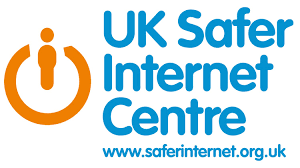Safeguarding
Keeping children safe is our highest priority and a responsibility we take very seriously. Everyone who works at Birch Hill Primary School is responsible for the safeguarding of the children. We are obliged to act on any concerns.
Reporting Safeguarding concerns to school
- The Designated Senior Person for Child Protection (the person who deals with any referrals or concerns about Safeguarding of children in school) is Mr Dillon - Headteacher
- Ms Cameron, Mrs McAllister and Mrs Payne are part of the schools' Safeguarding Team. They are fully trained and Deputy Designated Officers.
- Mr Stephen Weeks is the lead governor for safeguarding.
Anyone in the Safeguarding Team will be happy to discuss any questions or concerns parents/carers may have about Child Protection issues. This also includes Child Protection Policies and Practice. Please contact any of the above via the school office.
Our child protection policy outlines our procedures and the designated members of staff involved. To download a copy of this policy, visit our School Polices & Other Documents page
Prevent Duty
The Prevent Duty aims to prevent young people from being radicalised by, for example, far right extremists or religious extremists.
In school we have a duty to care for the children and take note of any child who is at risk of radicalisation, regardless of their background. We also have to take steps to help prevent children being exposed to extremist ideas. Our overriding concern is that children feel safe and also express tolerance towards all cultures and religions, even when personal views may be different.
Health & Safety
We are committed to making sure our school is a healthy and safe environment for all of our children and their varied needs.
If your child would like to come to school by bicycle or scooter, could you please read and sign a copy of our code and return it to the School Office for our Health and Safety Officer.
Medical Procedures
We are committed to supporting all of our children and their varied needs. If your child should require a course of medication and you would like it to be administered in school please complete a request form available from the school office.
Alternatively you can download the form here and hand it in at the school office.
Safer Recruitment
The safety of our pupils at Birch Hill is paramount and we endeavour to take every step we can to ensure our recruitment procedures matches this.
When a vacancy does open for a position at our school we ensure we follow these guidelines during our advertisement process,
We aim to;
- attract the best possible applicants to vacancies;
- deter prospective applicants who are unsuitable for work with children or young people;
- identify and reject applicants who are unsuitable for work with children and young people.
On receiving applications we consider each one carefully before moving into the short listing phase which will always contain a face to face interview, and a DBS check.
Internet Safety
ICT in the 21st Century is seen as an essential resource to support learning and teaching, as well as playing an important role in the everyday lives of children, young people and adults. Consequently, schools need to build in the use of these technologies in order to arm our young people with the skills to access life-long learning and employment.
At Birch Hill we understand the responsibility to educate our pupils on eSafety issues; teaching them the appropriate behaviours and critical thinking skills to enable them to remain both safe and legal when using the internet and related technologies, in and beyond the context of the classroom. More help and information on eSafety can be found on below.
Information and Communications Technology covers a wide range of resources including; web-based and mobile learning. It is also important to recognise the constant and fast paced evolution of ICT within our society as a whole.
Internet Safety - Links for Children
|
|
Thinkyouknow |
|
|
Childnet International A non-profit organisation working with others to help make the internet a great and safe place for children. |
|
|
Internet Safety Centre |
|
|
Government Internet Safety Resources A framework to equip children and young people for digital life |
Internet Safety - Advice & Links for Parents/Carers
Explore sites and apps together
Talk about what might be OK for children of different ages. Ask your child what sites or apps they like. Write a list, and look at them together.
Be positive about what you see, but also be open about concerns you have: "I think this site's really good" or "I'm a little worried about things I've seen here".
Talk to your child about what you think is appropriate – but also involve them in the conversation. Ask what they think is OK for children of different ages – they'll feel involved in the decision-making.
Be aware that your child might talk about friends who use apps or visit sites that you've decided aren't suitable. Be ready to discuss your reasons, but recognise that they may not agree with you. Listen carefully for the reasons why.
Go through a final list of sites you both agree are OK, and work out when you'll next discuss it.
Ask about things they might see online which make them feel uncomfortable.
Talk about things they, or their friends, have seen that made them feel uncomfortable:
- Be specific. What exactly made them feel uncomfortable and why? Is it people or animals being hurt? Nasty comments about others?
- Link these to things in the real world, and explain that you're always here to protect and help them online and off.
- Reassure your child that they can always talk to you about anything that makes them feel uncomfortable.
- Show them how to report or block on the sites and apps they use. Use Net Aware to find out how.
- Tell them you'll help them to report anything upsetting they've seen, or to deal with online bullying.
Talk about how they can stay safe on social networks
Ask your child if they know:
- where reporting functions are
- how to block someone
- how to keep information private.
Show them how to do these things. Use Net Aware to help you.
Talk about online privacy, and being Share Aware. Explain that online behaviour – including sharing personal information – should mirror behaviour in person.
Explain that talking to strangers isn't always 'bad', but they should always be careful about what they share and sometimes people aren't who they say they are.
Reassure them that you won't overreact – you're just looking out for them
Explain that you understand the internet is a great place to be and that you're just looking out for them. Tell them they should speak up and not keep secrets if something is worrying them.
Reassure them that you're interested in all aspects of their life. Say that you'd like to talk about stuff they've seen online, sites and apps they visit, and that you'll share the things you've seen too. Recognise that they'll be using the internet to research homework, for example.
Be Share Aware: talk about what's OK, and not OK, to share online
Talk to your child about what 'personal information' is - such as email address, full name, phone number, address and school name - and why it's important.
Explain simple ways to protect privacy. For example, avoiding usernames like birthdates or locations that give away too much information.
Discuss images and photos, and what might be appropriate. Help your child understand how photographs can give people a sense of your personality, and that sharing the wrong kind of image can give the wrong impression.
Explain that it isn't easy to identify someone online. People aren't always who they say they are, so don't share personal information. If it's someone who genuinely knows your child, they shouldn't need to ask for personal information online.
Tell your child that if they're in any doubt they should talk to you first.
What to do if you're worried about your child online
There may be times when you're worried about your child's online safety. If you're unsure what to do, help is at hand.
We've put together some of the things that might be worrying you, and what you can do to help your child.
I'm worried my child is...
- Sharing personal information…
Talk to your child about the things that they can safely share, like their interests and hobbies. And explain what counts as personal information, for example:
- their full name
- address
- mobile number
- email address
- passwords.
Remind them they wouldn't share this information with people they didn't know in the real world.
They might be happy to share thoughts and feelings online with friends, but explain that they should be wary of doing this with strangers. Not everyone is who they say they are online, and sometimes things like your hopes and fears can be used against you by people you don't know.
If your child is worried they've shared too much, make sure you're able to help them if needed.
The NSPCC Net Aware guide to the social networks your children use has links to information that will help you and your child, including how to:
- remove content on different apps and sites
- block people
- report abuse
- Being bullied on-line:
Recognise that online bullying might be just one part of bullying that's happening in their day-to-day lives, and there might be a lot of underlying issues.
- Reassure them that you can help to remove the content that's upsetting them and block the person who made the comments.
- Look at the negative comments with them and contact the provider to get them removed.
- Save the evidence by taking screen shots.
- Contact their school to let them know about the incident, if you think it's appropriate.
Find out more about keeping your child safe from bullying and cyberbullying.
- Bullying others on-line:
If your child has been bullying others online, find out whether other children were involved and what part your child played.
They may not have realised that what happened was bullying. Tell them explicitly that this behaviour isn't acceptable and the fact it's online doesn't mean it's not upsetting.
Help them understand how what they've done feels. You could ask them how they think the other child felt, or how they feel when someone says unkind things to them.
Explain that leaving someone out of an online discussion or group can be just as bad as attacking them directly. Encourage them to apologise to the person involved and help them to remove the content.
- Spending too much time on-line:
Agree what times your child can go online. For example, not going online just before bed time or in the morning before school.
Explain that you think it's important they do a variety of activities. You recognise that they enjoy being online, but you think it's important they do other things as well.
Discuss your family agreement and remind them why it's important. Use technical tools to help you reinforce online times. Many sites have timers that you can set, or you can set it up on the computer, mobile or tablet.
Make sure that you stick to what you've agreed and that you manage your own time online.
Useful links:
Government Safeguarding Information and Resources
Further Contact Details
Bracknell Forest - Child Protection referrals via Multi Agency Safeguarding Hub (MASH)
MASH
Time Square
Market Street
Bracknell
Berkshire
RG12 1JD
Email: MASH@bracknell-forest.gov.uk
Tel: 01344 352005
Please click on the link below for more information on reporting concerns.
Report Abuse
If you are a child/ young person/ vulnerable adult or a parent/ carer and need advice, help, or to report abuse please use the CEOP report button below.




